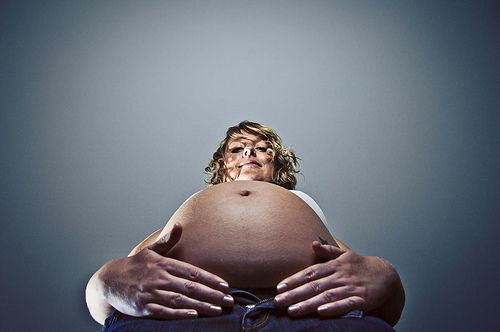Heavy Viewers Of ‘16 And Pregnant,’ ‘Teen Mom’ Hold Unrealistic Views About Teen Pregnancy

Reality television gets a lot of flak these days, primarily because the producers behind the shows purposely assemble the raw footage they capture into familiar story arcs. It may make for more compelling television, but critics argue some truths often get lost in the shuffle. Most recently, researchers at Indiana University Bloomington have found that heavy viewers of teen pregnancy shows, such as MTV’s 16 and Pregnant and Teen Mom carry overly optimistic views of what life is like as a teen parent.
In 2011, the creator of both shows, Lauren Dolgen, explained in an article she penned for CNN that she developed them with the idea of showing teen pregnancy’s true, ugly face. She points out that some have called the shows “one of the best public service campaigns to prevent teen pregnancy.” But the current research, forthcoming in the journal Mass Communication and Society, suggests the opposite. Teens who watch a lot of 16 and Pregnant and Teen Mom get the impression that the girls featured on the shows are relatively wealthy, have large stretches of free time, and can easily find child care services.
The reality is far more sobering, according to co-researcher and lead author of the study, Nicole Martins. Martins and her colleague, Robin Jensen, who works as an assistant professor of communication at the University of Utah, found that the shows often glamorized its subjects. Admittedly, Martins explains, 16 and Pregnant offered a much rawer perspective than its spin-off Teen Mom 2, as the spin-off has given some of the mothers a sort of celebrity status.
"Maybe that's what's drawing viewers' attention,” Martins said in a news release, “the fact that one of the teen moms, Farrah Abraham, repeatedly is on the cover of Us Weekly for all the plastic surgery that she's had. Well, a teen mom living in this country can't afford that; most unmarried teen mothers are on welfare.”
The Consequences Of False Reality
Teen Mom and 16 and Pregnant aren’t alone in the researchers’ blame. Reality TV is founded on the premise that real life must imitate familiar story arcs, ones that begin with conflict and end with resolution, all the while making viewers care about the characters. Shows are often — if not always — scripted, their plots predetermined, and their scenes staged. When Martins and Jensen asked 185 teenagers, between 14 and 18, how they perceived teen pregnancy shows, heavy viewers responded with far more optimism than lighter viewers. The researchers attributed this to the show’s falsifying narrative.
As expected, viewers tended to be female, regardless of the frequency with which they tuned in. While 80 percent of male subjects said they never watched the show, 58 percent of female viewers said they “sometimes” or “always” watched the show. Interestingly, however, when the researchers controlled for gender, the effect of the shows remained the same: The heavy viewers who were male reported the same attitudes as the female viewers. This alarmed Martins and Jensen, as their findings seemed to imply a comfort with teen pregnancy among heavy viewers — an attitude Dolgen said was never her intention.
"The fact that teens in the study seemed to think that being a teen parent was easy might increase the likelihood that they'll engage in unsafe sexual practices because that's not a real consequence to them,” Martins said. “Indeed, there are some individuals who believe that this reality TV show is like real life. For them, they were the most likely ones to hold unrealistic perception about teen parenthood.”
While the trend is heading in the right direction — the U.S. once featured the world’s highest teen pregnancy rate a little over a decade ago, but in 2010 it was measured at a historic low — the threat of popular culture reviving that morbid distinction in 2001 seems all too real for Martin and Jensen. While it’s disingenuous to say that shows like 16 and Pregnant and Teen Mom outright cause teen pregnancy, they believe the programs are, without question, contributing factors.
"This study makes a valuable contribution because it links exposure to specific content — teen mom reality programming — to teens' perceptions of teen motherhood," the professors concluded. "In other words, the attention and opportunities seemingly thrown at these teen parents may appear so appealing to viewers that no amount of horror stories from the reality shows themselves can override them.”
Source: Martins N, Jensen R. The relationship between “teen mom” reality programming and teenagers’ beliefs about teen parenthood. Mass Communication and Society. 2014.
Published by Medicaldaily.com



























